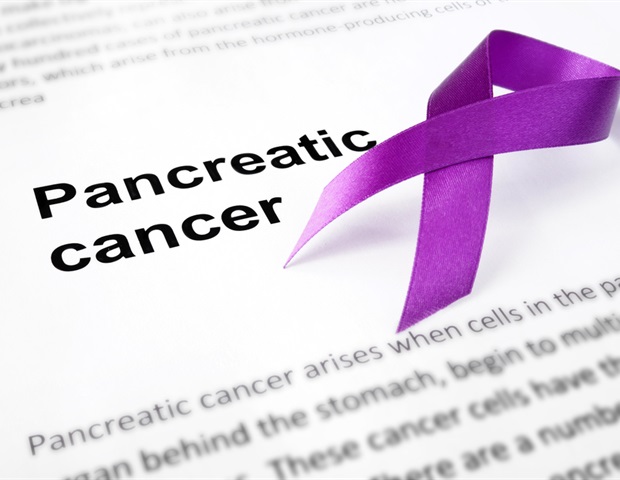
Researchers from Queen Mary University of London and Zhengzhou University have developed a personalized vaccine system that could ultimately delay the onset of pancreatic cancer. The study provides strong proof-of-concept for the creation of a vaccine for cancer prevention in individuals at high risk of developing this disease and to slow down tumor growth in patients who are affected by it.
The study reports the team's work with a pre-clinical model using mice. The research was published today in Clinical Cancer Research, a journal of the American Association for Cancer Research.
Although vaccines do exist for some cancers caused by known pathogens, such as the human papilloma virus in cervical cancer, vaccination against non-viral cancers has remained a challenge. In the study, researchers created a vaccine system that doubled the survival time of mice with pancreatic cancer. Importantly, the vaccine system can be personalized for the individual receiving it and could potentially be tailored to work against other types of cancer.
Vaccines work by training the immune system to recognize and kill pathogens within the body. To do this, immune cells must recognize molecules on the surface of the pathogens, called antigens. By injecting these antigens as a vaccine, the immune system can safely learn how to recognize them as foreign objects - and remember this should they be found in the body again.
Professor Yaohe Wang from Queen Mary University of London and the Sino-British Research Centre at Zhengzhou University in China, who led the study, said:
Development of a preventive vaccine against non-viral cancers is hugely limited by the lack of appropriate tumor antigens and an effective approach to induce robust anti-tumor immunity against those antigens. Through this international collaboration we have made progress towards the development of a prophylactic cancer vaccine against pancreatic cancer.
This is preliminary data from tests on mice but it could be a platform for developing personalised and powerful cancer vaccines to reduce cancer incidence in at-risk individuals.
To make the vaccine, researchers took cells from mice and turned them into pancreatic cancer cells by adding two errors into their genetic code. These errors, or mutations, are known drivers of pancreatic cancer. The team then infected these cells with viruses, which have an important role in the vaccine system. Not only do the viruses kill the cells to remove their ability to form tumors within the body, but they do so in a way that activates the immune system against these cells.
As the cells die following injection into the subject, they release antigens specific to these pancreatic cancer cells, priming the immune system to recognize the initiation of cancer and prevent its development within the body.
By injecting these virus-infected cells into mice that were destined to develop pancreatic cancer, the team were able to delay the onset of disease, doubling their survival time when compared with mice who did not receive the vaccine.
The genetic makeup of cancer varies from individual to individual. That means treatments that are effective for one patient's cancer may not be effective against another's. Notably, because the cells were derived from the mice that were going to receive the vaccine, the cells created were genetically similar to cancer that was going to develop in these mice. This suggests that cells could be taken from at-risk individuals and used to create matching tumor cells for use in a vaccine regime tailored to those individuals.
Pancreatic cancer has the lowest survival rate of all the common cancers, with less than 5% of those diagnosed surviving for longer than five years.
Dr Louisa Chard Dunmall, senior postdoctoral research fellow at Queen Mary, said:
One reason for this low survival rate is lack of symptoms, meaning diagnosis is often not made until the cancer is at an advanced stage. This suggests a window of opportunity for the application of preventative vaccine strategies. Although this research is at the early developmental stages, it provides strong evidence that the creation of a vaccine against pancreatic cancer is possible.
The research was undertaken by scientists from the Barts Cancer Institute at Queen Mary, the Sino-British Research Centre at Zhengzhou University and the Guangzhou Institutes of Biomedicine and Health, Chinese Academy of Sciences. The Sino-British Research Centre is a joint venture established by Queen Mary and Zhengzhou University.
The team will now look at different ways of improving the regime - including increasing the number of vaccinations or combining the vaccine with other therapies such as immunotherapies.
Queen Mary University of London
Journal reference:
Lu, S. et al. (2019) A Virus-Infected, Reprogrammed Somatic cell-derived Tumor cell (VIReST) vaccination regime can prevent initiation and progression of pancreatic cancer. Clinical Cancer Research. doi.org/10.1158/1078-0432.CCR-19-1395






No comments
Post a Comment